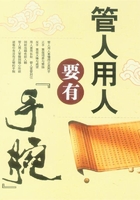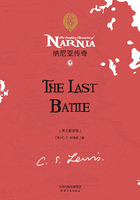S trauss, Bauer, Stirner, Feuerbach -- these were the offshoots of Hegelian philosophy, in so far as they did not abandon the field of philosophy. Strauss, after his Life of Jesus and Dogmatics, produced only literary studies in philosophy and ecclesiastical history after the fashion of Renan. Bauer only achieved something in the field of the history of the origin of Christianity, though what he did here was important. Stirner remained a curiosity, even after Bakunin blended him with Proudhon and labelled the blend "anarchism". Feuerbach alone was of significance as a philosopher. But not only did philosophy -- claimed to soar above all special sciences and to be the science of sciences connecting them -- remain to him an impassable barrier, an inviolable holy thing, but as a philosopher, too, he stopped half-incapable of disposing of Hegel through criticism; he simply threw him aside as useless, while he himself, compared with the encyclopaedic wealth of the Hegelian system, achieved nothing positive beyond a turgid religion of love and a meagre, impotent morality.
Out of the dissolution of the Hegelian school, however, there developed still another tendency, the only one which has borne real fruit.
And this tendency is essentially connected with the name of Marx. [10]
The separation from Hegelian philosophy was here also the result of a return to the materialist standpoint. That means it was resolved to comprehend the real world -- nature and history -- just as it presents itself to everyone who approaches it free from preconceived idealist crotchets.
It was decided mercilessly to sacrifice every idealist which could not be brought into harmony with the facts conceived in their own and not in a fantastic interconnection. And materialism means nothing more than this.
But here the materialistic world outlook was taken really seriously for the first time and was carried through consistently -- at least in its basic features -- in all domains of knowledge concerned.
Hegel was not simply put aside. On the contrary, a start was made from his revolutionary side, described above, from the dialectical method.
But in its Hegelian form, this method was unusable. According to Hegel, dialectics is the self-development of the concept. The absolute concept does not only exist -- unknown where -- from eternity, it is also the actual living soul of the whole existing world. It develops into itself through all the preliminary stages which are treated at length in the Logic and which are all included in it. Then it "alienates" itself by changing into nature, where, unconscious of itself, disguised as a natural necessity, it goes through a new development and finally returns as man's consciousness of himself. This self-consciousness then elaborates itself again in history in the crude form until finally the absolute concept again comes to itself completely in the Hegelian philosophy. According to Hegel, therefore, the dialectical development apparent in nature and history -- that is, the causal interconnection of the progressive movement from the lower to the higher, which asserts itself through all zigzag movements and temporary retrogression -- is only a copy [Abklatsch] of the self-movement of the concept going on from eternity, no one knows where, but at all events independently of any thinking human brain. This ideological perversion had to be done away with. We again took a materialistic view of the thoughts in our heads, regarding them as images [Abbilder] of real things instead of regarding real things as images of this or that stage of the absolute concept. Thus dialectics reduced itself to the science of the general laws of motion, both of the external world and of human thought -- two sets of laws which are identical in substance, but differ in their expression in so far as the human mind can apply them consciously, while in nature and also up to now for the most part in human history, these laws assert themselves unconsciously, in the form of external necessity, in the midst of an endless series of seeming accidents. Thereby the dialectic of concepts itself became merely the conscious reflex of the dialectical motion of the real world and thus the dialectic of Hegel was turned over; or rather, turned off its head, on which it was standing, and placed upon its feet. And this materialist dialectic, which for years has been our best working tool and our sharpest weapon, was, remarkably enough, discovered not only by us but also, independently of us and even of Hegel, by a German worker, Joseph Dietzgen. [11]















